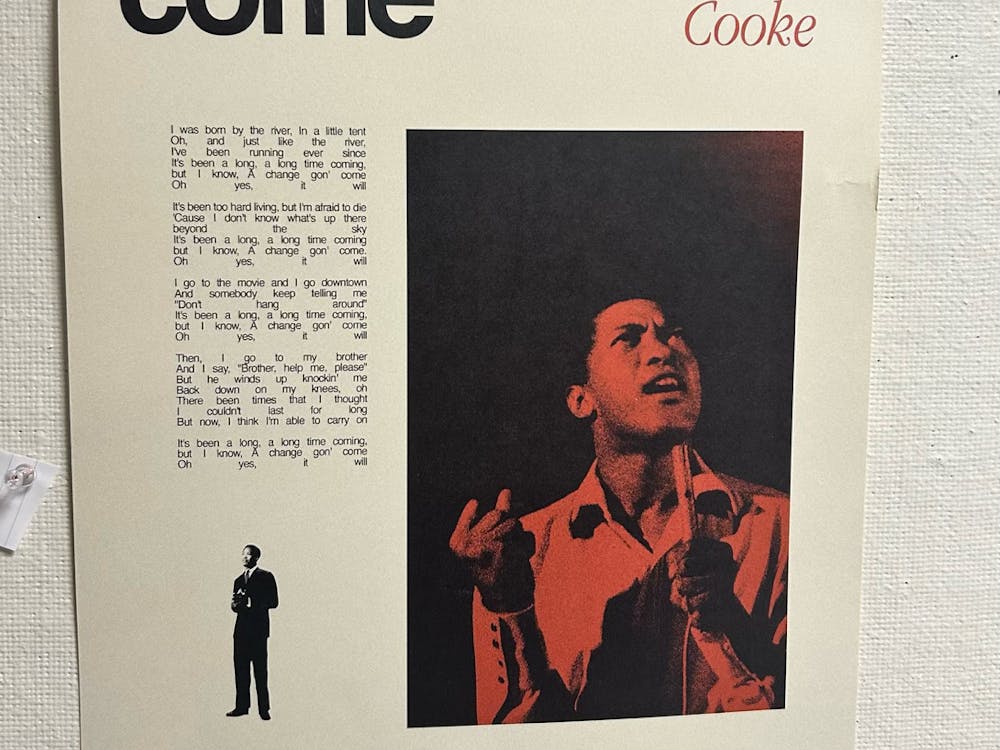Ivy-covered walls, arched entryways, spirited football games — it’s impossible not to come to college with some of these preconceived notions. But having these imagined visions of college to look forward to isn’t the problem. It’s a matter of how tightly you hold onto them once you get here.
It’s hard to forget my first day living in Homewood Apartments. After an entirely online freshman year, I was expecting — and desperately in need of — friendly voices, open doors, lively bustle, and all the typical fare we’ve absorbed from books and movies of what a college dorm should look like. Instead, I was greeted by near-deserted halls, stuffed with a silence that clarified all too well the fact that I was 2,300 miles away from home.
First days don’t always turn out great, and we shouldn’t expect them to be. Nor are they a good representation of what awaits you on the horizon. These pieces of advice that I tell myself, looking back, fit into a larger puzzle of reimagining our expectations. We should not only question what we expect but also get used to letting it all go — it’s the only way we can build our expectations back up, newly adjusted to whatever reality we find ourselves in.
During my sophomore year, I came across countless moments when I found myself having to abandon the expectation ship and jump headfirst into reality. It’s sometimes bracing and at other times dismaying, but almost always disorienting. One of the best insights I can offer to any incoming freshman is a preview, a small sliver of foresight, into some of the major reality vs. expectation conundrums you may come across during your first year of the twisting, turning journey that is college.
STEM, who?
By the time you get here, you’ll likely have already heard the words “world-class research” and “pre-med” in bountiful amounts. You’ll probably know what BME stands for before figuring out what AMR is supposed to mean. But — what about the fact that research can be done in the humanities, too? Or that Hopkins has a pre-law community in addition to pre-meds? STEM can seem big here, but it’s nowhere close to all there is.
Academically, you’ll find a plethora of non-STEM majors and minors, ranging from Museums and Society to Women, Gender and Sexuality. The student body as a whole contains many diverse artistic leanings too. You can catch a concert at The Peabody Institute, write for a humor magazine or direct a theater show, all here on campus. Case in point, I had no idea that a close-knit film community was thriving here at Hopkins until I declared my second major in Film and Media Studies.
BFFs and roommates — one and the same?
The idea that you and your roomie will be joined at the hip seems to be an ever-persisting college expectation. For as many people who have meticulously planned roommates, there are plenty more who have resorted to randomization or pairing up with someone they just met. I was part of the latter camp, and take it from me, someone who didn’t know a single soul before stepping foot on campus: it’ll all turn out fine in the end.
What helped me the most was figuring out that you don’t need to be best friends with your roommate — or friends, period — to have a good, comfortable living situation. Do get along, of course, but keep in mind that once classes and clubs start, the avenues to meeting new people greatly widen — you don’t need to hinge it all on one person. Living together is known to put a strain on relationships too, so realize that it’s normal if it doesn’t work out.
Meals, meals, meals.
It’s one of those no-brainers that you suddenly have to make room for in your head. The what and the when certainly come into question as you work out your meals, but for me, the most pressuring was the who. I had always envisioned eating with groups of friends, laughing and talking without a care in the world. But when my packed calendar became a reality, a lunch here and there would look like hauling myself across campus at 2 p.m. to get a quick bite in before class.
This just goes to say mealtimes in college just can’t feasibly always be spent with friends, especially with everyone operating on different schedules. You’ll likely find, at least in my case, that you’ll be eating alone once a day, if not more — and that’s totally okay. For every meal, also be prepared to mull over exactly which dining hall to go to. If you develop a consistent plan that repeats by the week, trust me, it can save a lot of time in the long run.
The be-all and end-all…
There are a lot of sayings about college, but the one that I could never get out of my head was the age-old “the best four years of your life” one. Phrases like “make the most out of it” or “once-in-a-lifetime opportunity” would feel paralyzing instead of invigorating, as the pressure set in to make my college experience not just great and not just excellent but somehow utterly surpass anything else I’d ever known.
That’s just not the way it has to be. The obligation to carve out a ‘perfect’ four years can keep you from exploring new paths, just as the disappointment of expectations not matching up with reality can become a detriment in all that you do. Rest assured, the experience of college — and every up and down that comes with it — will happen to you. Just sit back, relax and embrace it when it comes.





